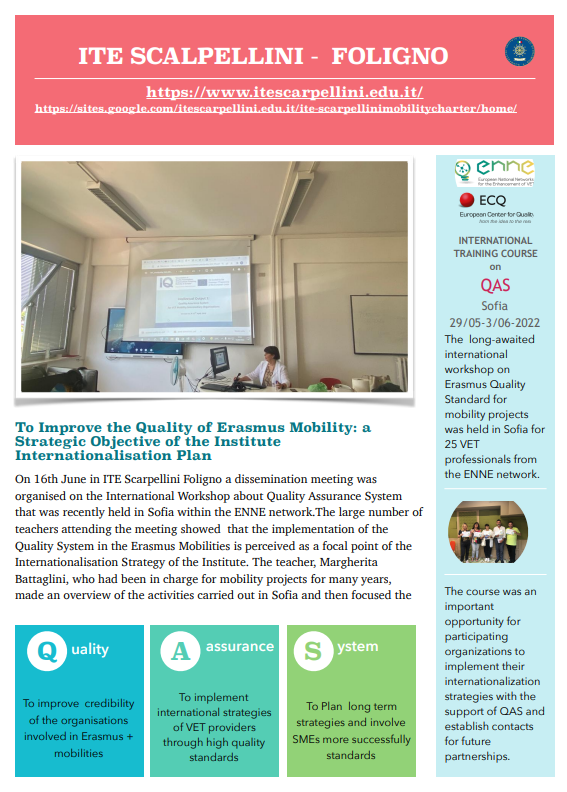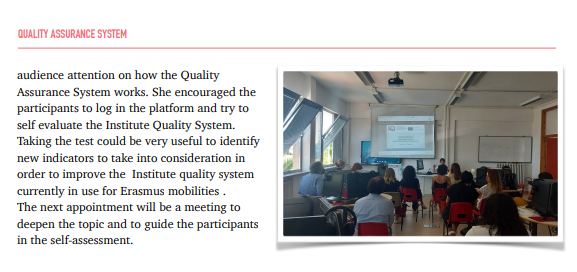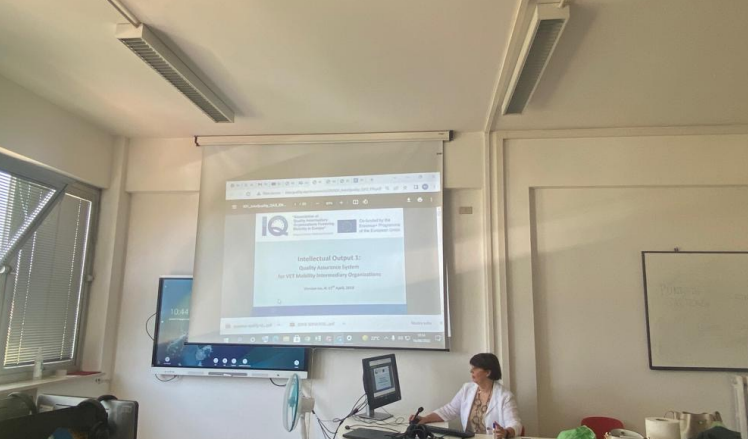
Month: June 2022

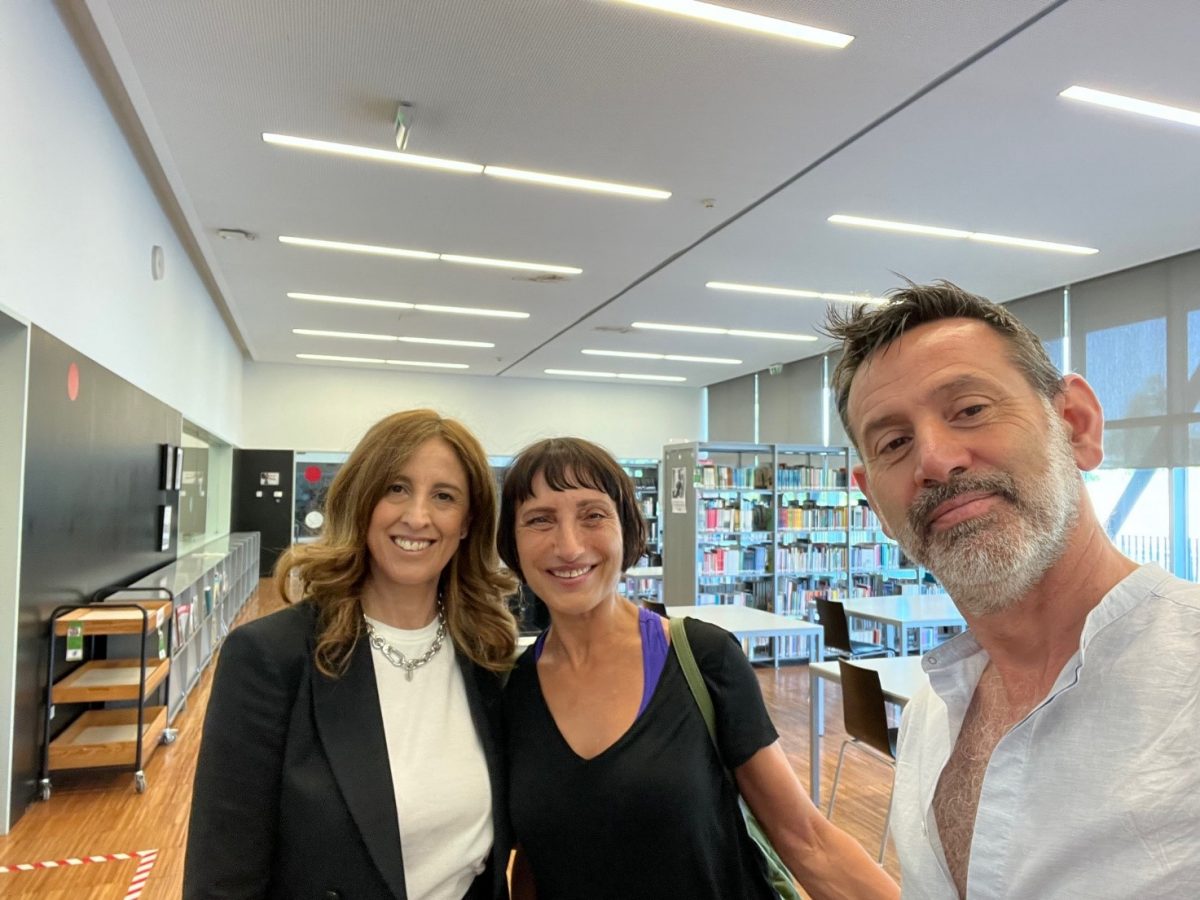
Alessandro Safonte, teacher at High School “Rocco Chinnici” in Italy, hosted by Escola Secundária de Felgueiras in Portugal.
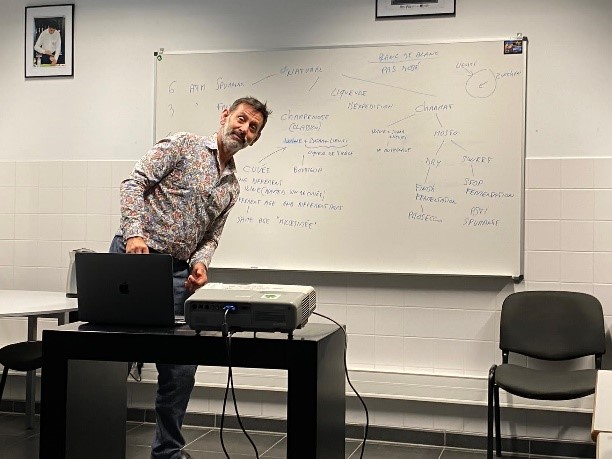
Alessandro’s experience:
“Amazing welcome! My colleague Clarisse Maria Carneiro Bravo de Oliveira Pires Lemos welcomed me like a brother, I felt pampered by everyone. The activities carried out were varied, I had the opportunity to give lectures on topics specific to the hotel sector, from simple notions of service styles in the restaurant room, highlighting the differences between the two countries, to the complex subject of Italian denominations of origin, to the exchange of good practices and comparison of the forms used for internships and use of platforms.
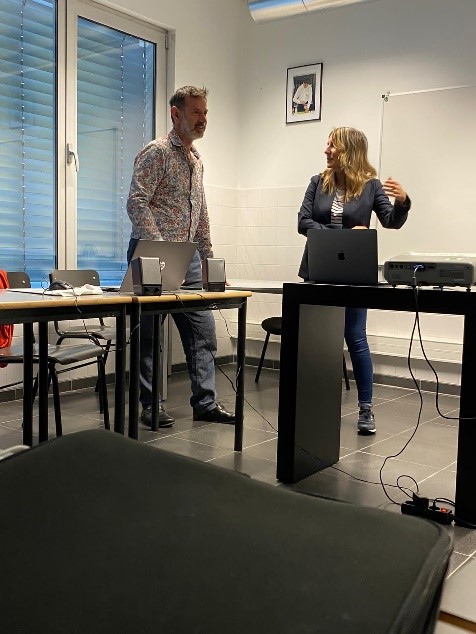
On 12 May, I was invited as a speaker in a debate on school and European citizenship, I was a little embarrassed at first, I do not have a good command of the English language apart from a minimal vocabulary. However, I think it went very well, in the days that followed I was appreciated for the food for thought that I shared with the bystanders, I was perhaps a bit provocative but it is part of my character.
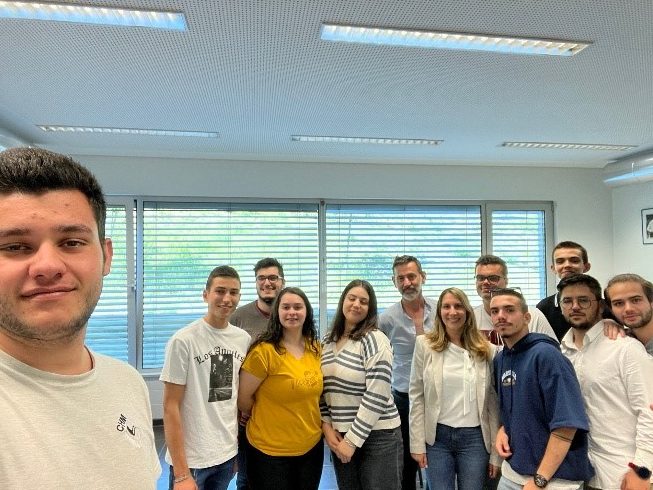
The students were very interested and followed me with passion, they even enjoyed taking my picture. With them, mutual sympathy suddenly sprang up, I must admit that at the moment of saying goodbye I got a little sad. My colleague gave me the opportunity to visit the companies with which they collaborate by hosting their students on internships, I hope that this will start a collaboration in the coming years, I would love to take my students for an experience in Portugal.
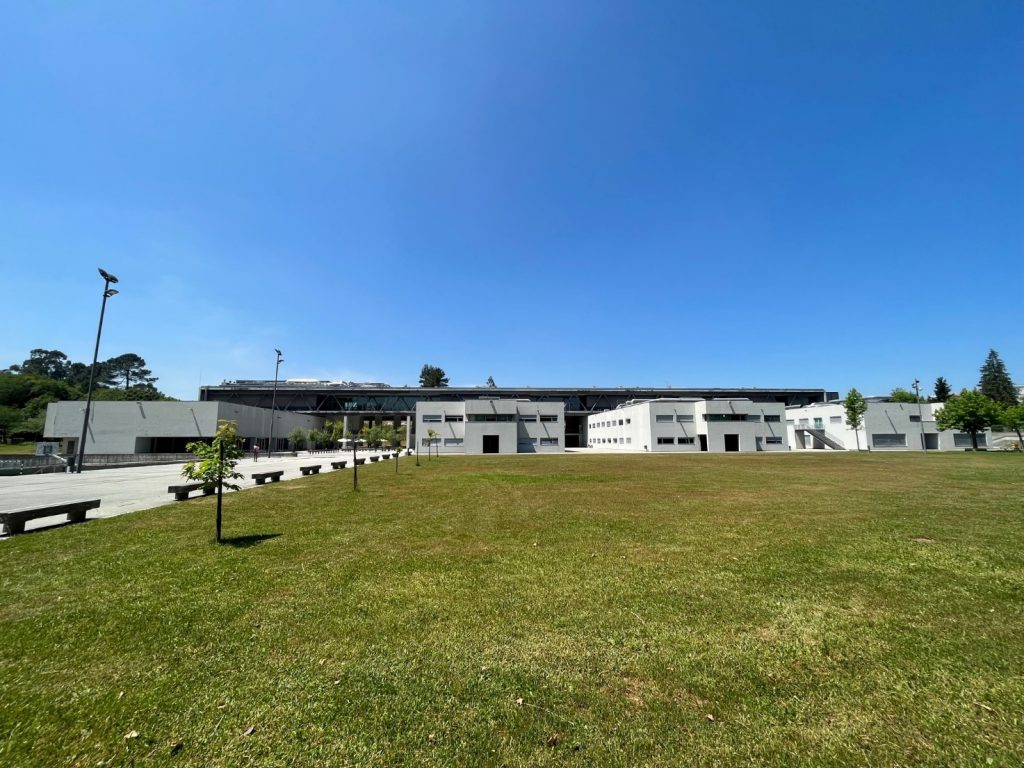
The visits to the main tourist attractions were also very interesting, and not only that, my colleague Sandra Machado gave me a tour of an important home textiles company, which was a wonderful visit”.
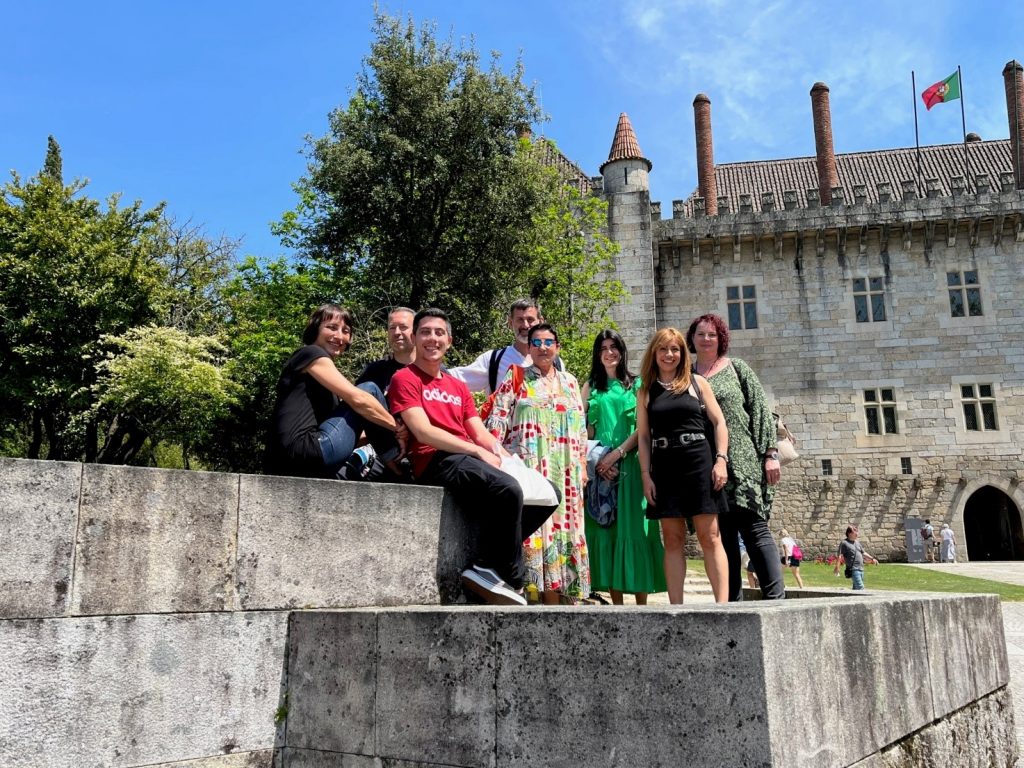
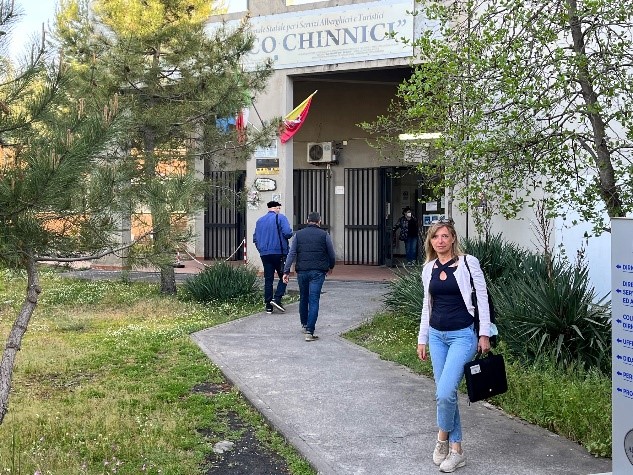
Alessandro Safonte, teacher at the high school “Rocco Chinnici” (Italy) hosted Prof. Regine Vandecandelaere, lecturer c/o the LTI Oedelem (school for science, landscaping, gardening) in Oedelem (Beernem) for her job-shadowing activity from 24 March to 30 March.
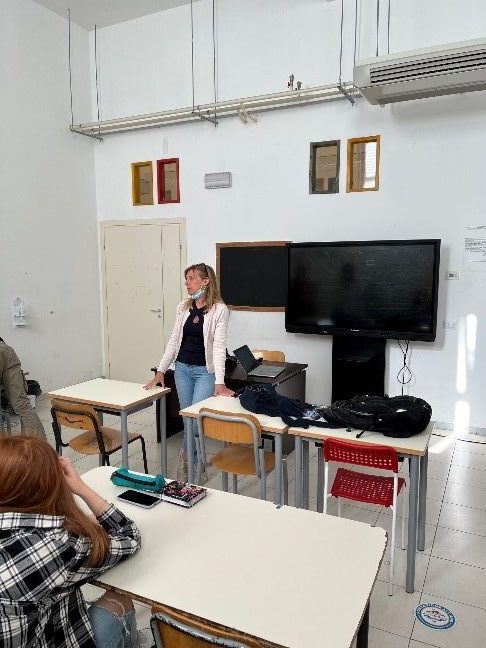
Regine’s experience:
“A very pleasant experience, certainly being on my own I was able to devote myself to her for the whole week, the day started at 7:30 a.m., when I went to pick her up in Catania, to go to our Institute, and start different activities. She took part in my technical-practical lessons in the workshops of the dining room and kitchen and participated in French and English lessons.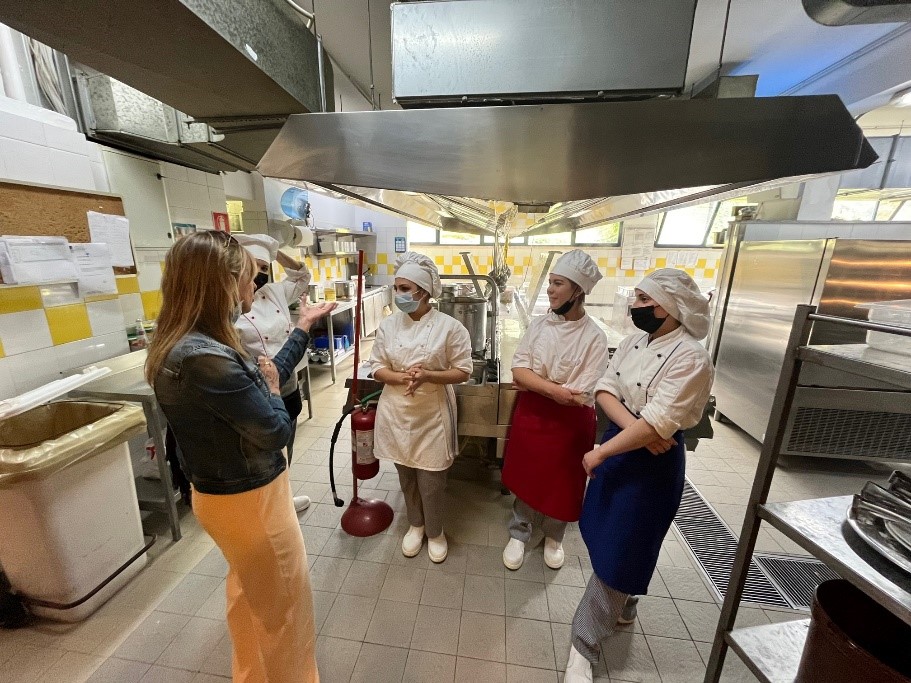
The relationship with other colleagues was very good, at the beginning she didn’t understand the dynamism of our institute and this made her a bit uncomfortable, in fact, then she liked the way we teachers interact with our students, being a professional institute the approach with them is very empathetic.
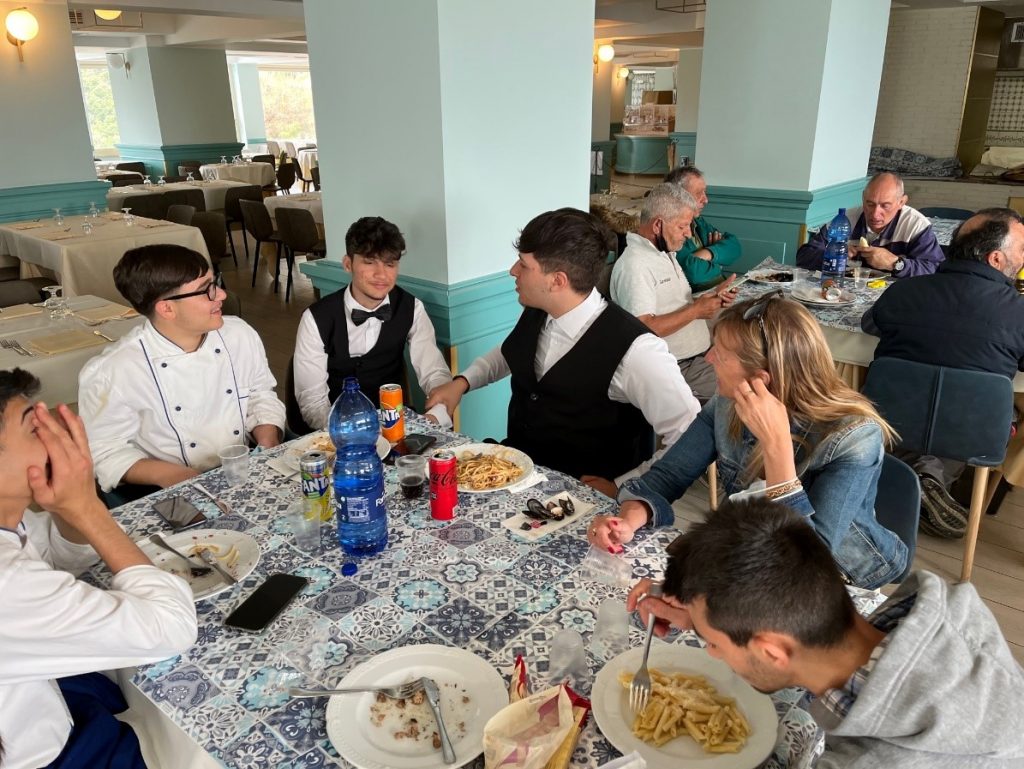
During the week we didn’t limit ourselves to classroom activities but I took the opportunity to have her meet with the students who were doing internships at hotels in Taormina, the focus of the experience was on the management of our students’ internships, we talked a lot about how to organise them and the critical issues that can arise.
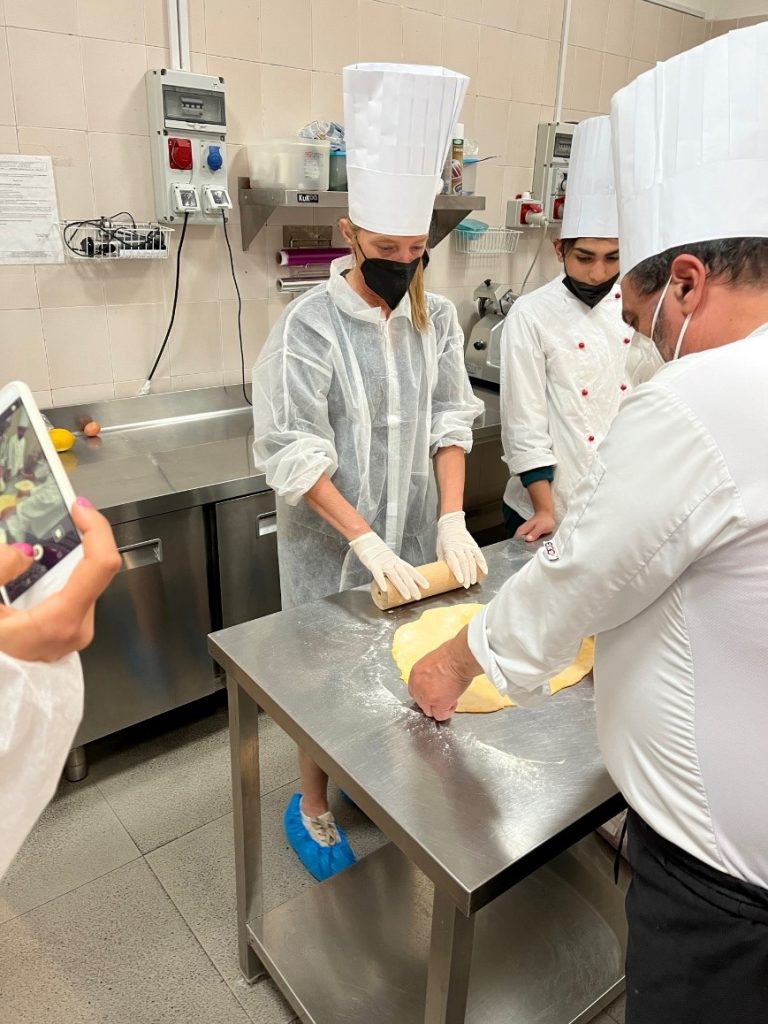
We also compared the documentation we use in the management of internships, and had the opportunity to exchange views with the students and company tutors. There were also visits to the area such as Noto. Vendicari Nature Reserve, Syracuse, Catania, Taormina; the food and wine experiences were also interesting, which I say…. I hope to give the same opportunities to many more teachers next year”.
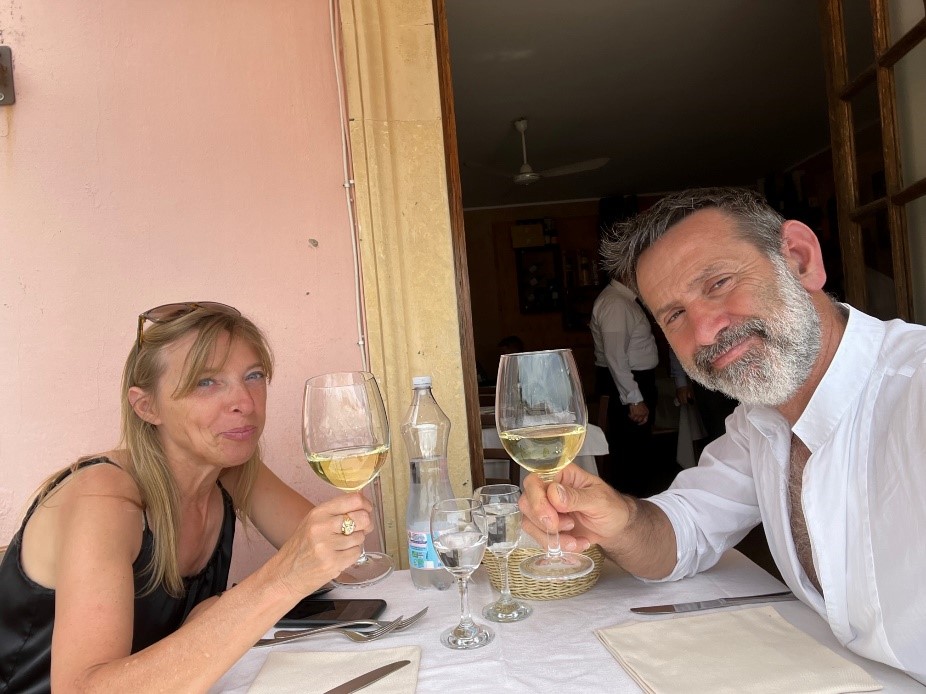

The KA2 SUS&DIV project wants to:
- create an inclusive environment in cooking and catering vocational adult training: Diversity is gaining in Europe. The European Commission focuses on the importance of diversity and inclusion in our workplaces and in the society throughout the whole European Union through actions such as Diversity Month. If we want employers who are able to adequately and ethically deal with diversity issues, we have to create an inclusive environment in our education system. In our context we see diversity in an intersectional approach. Intersectionality means that somebody’s social identity is not perceived in terms of just one aspect of it (such as gender, social class, religion, ethnicity, sexuality) but that these aspects together shape somebody’s perceived and experienced social identity. All these different aspects coexist, mutually reinforce each other and decide the unique social location that an individual occupies. The broader social environment also influences the way a person experiences his or her specific social location in society. It is not possible to provide diversity-sensitive teaching and learning without addressing this complex relation between social identities and the organizational and societal context. (Radstake, 2021)
- implement sustainability in cooking and catering vocational adult training: The Farm to Fork Strategy is at the heart of the Green Deal. It addresses comprehensively the challenges of sustainable food systems and recognizes the inextricable links between healthy people, healthy societies and a healthy planet. The strategy is also central to the Commission’s agenda to achieve the United Nations’ Sustainable Development Goals (SDGs). All citizens and operators across value chains, in the EU and elsewhere, should benefit from a just transition, especially in the aftermath of the COVID-19 pandemic and the economic downturn. A shift to a sustainable food system can bring environmental, health and social benefits, offer economic gains and ensure that the recovery from the crisis puts us onto a sustainable path. If we want the Farm to Fork strategy to be successful, the catering and cooking education has to be involved, so the strategy will be adapted in future catering businesses.
KA2 Dementia
- Post author By enneproject
- Post date 17 June 2022
- No Comments on KA2 Dementia

Taking into account the proposal for a Council Recommendation on Vocational Education and Training for Sustainable Competitiveness, Social Equity and Resilience and the updated European Skills Agenda, the Osnabrück Declaration focuses on four key areas for the years 2021 to 2025:
- Resilience and excellence through quality, inclusive and flexible VET
- Creating a new culture for lifelong learning – relevance of continuing education and digitalisation
- Sustainability – a green link to VET
- European education and training area and international vocational education and training
With this project we contribute to these objectives to a greater or lesser extent. Our two focuses within our project are mainly on 1 and 2. Through this project we upscale the digital skills of teachers and trainers in both the formal and non-formal sector so that they are able to develop qualitative interactive online teaching modules that contribute to a culture of lifelong learning. The developed modules focus on the theme of dementia in society. By doing so, we improve the quality of the existing care training programmes in the formal VET and the training programmes in the nonformal sector and adapt them to the increasing demand from society for quality education on this theme. This is necessary in order to detect the condition in people at an early stage and to provide them with high-quality care and support.
On its website, the WHO identifies a lack of awareness and knowledge about dementia, which is widespread in many countries. The partners within this project consortium fully endorse this observation.
The prevalence of dementia is escalating worldwide and knowledge deficits remain a barrier to community inclusiveness and quality care. The need for quality, comprehensive education has been identified as a key priority for global action plans on dementia. In the fight against Alzheimer’s disease, early recognition of this condition is extremely important. The online material we are developing is focused on the one hand on recognising the disorder and experiencing it, and on the other hand on the care that people with dementia need in their day-to-day lives.
At the end of this project, 24 expert teachers/trainers from the formal and non-formal sector will have upgraded their digital skills. Indirectly, there will be more people involved, because the 24 who are directly involved will spread the word within their own organisation.
3 modules will be developed.
A first module will deal with the dementia condition: issues such as What is dementia?, What are the symptoms? Different forms of dementia, Stages of dementia, Observing and understanding changing behaviour, Improving day-to-day functioning of people with dementia, Environmental impact on people with dementia, Dealing with changing behaviour, approaches and communication in dementia will be addressed.
A second module will deal with the necessary care, support and guidance for people with dementia in their home environment and in a care facility.
A final module will be about empowerment; with this module we want to achieve that people with dementia are seen and addressed to their full potential, within the context of this project by their family caregivers and their caregivers but by extension not only in care but also in society. The development of this material will ensure that care training in the formal VET sector and training in the informal sector can respond to the increasing demand for people with prior knowledge of dementia.
KA2 Comm(on)-line
- Post author By enneproject
- Post date 15 June 2022
- No Comments on KA2 Comm(on)-line
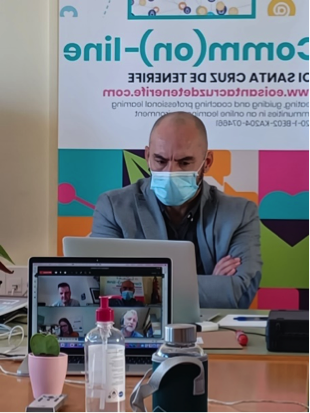
The need and necessity for lifelong and life-wide learning is still present in our society, not to say more than ever before, because of the constant changes in both people’s private and professional lives. The exodus of baby boomers poses major problems for companies; it is this generation in particular that holds specialist positions in companies today, and colleagues who are also active are unable to take time off to gain further training. The search for a balance between family, work and lifelong learning is more challenging than ever.
The increasing demand for blended and online learning is part of the transition to the life, learning and work of the future.
Expert teachers were teachers who succeeded in creating an optimal learning climate in the classroom using well-known teaching methodology, they succeeded in creating a safe learning climate and in supporting and guiding their learning community in their classroom. An optimal learning climate in the classroom means that an atmosphere of trust is created.
This is a climate in which it is self-evident that mistakes can be made, because making mistakes is the core of learning. In this environment, mistakes are welcome, questions are free, involvement is the norm and learners show that they can learn effectively. Today’s challenge is to do the same in an online environment. This project creates, guides and supports online learning communities. We find out what the most ideal blends in learning are: a blend of online collaborative learning combined with collaborative learning in real life/in the classroom and a blend of individual online learning and collaborative online learning in a group.
Over the past decades, teachers have built up a great deal of expertise in creating and support/tutoring professional learning communities within the four walls of the classroom. The change in the adult learner’s way of learning is forcing teachers to adapt their way of teaching. More and more, the adult learner wants tailor-made lifelong and life-wide (co-)learning independent of place and time. An answer to this changing need and ‘new’ way of learning can partly be provided by using the possibilities of the ‘new’ technologies. But a new form of learning also requires a new form of teaching. One of the many challenges today is to also create and support professional learning communities in a blended environment or in a complete online environment. The implementation of such a learning management system not only involves substantive challenges, but also many practical and organisational challenges. The aim of this project is to learn with and from each other how best to facilitate such transition processes, how to create, guide and support online learning communities, what the differences are between the known didactics and the e-didactics, which in many cases strongly deviate from the familiar general and more specific professional didactics. By following a few courses, we investigate the differences between the known didactics and the ‘new’ e-didactics, between working in real life with a professional learning community in a classroom context and working with a professional online learning community in a virtual context. We look at how we can support and coach our employees in our own organizations to make this transition a reality and see with our students how they experience this.
One of the many challenges today is to achieve the same in a blended environment or in a full online environment.
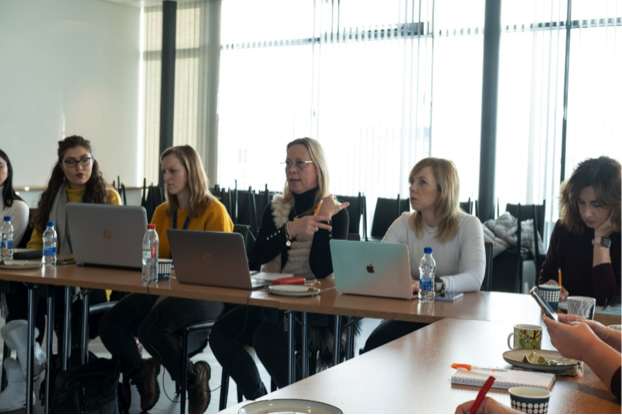
This project involves organisations from Northern Macedonia, Spain, Iceland, Scotland and Belgium. A total of 6 peer evaluations are being carried out. Based on these peer evaluations we make an inventory of our joint lessons learned and we support each other in further optimizing each other’s practice by searching together for answers to each other’s learning questions and providing each other with some advice. Through the sharing of good practices, we explore the differences between known subject didactics and e-didactics, between working in real life with a professional learning community in a classroom context and working with a professional online learning community in a virtual context. We look at how we support and coach our employees in our own organizations to make this transition a reality and check with our learners how they experience this. Although this is not a KA2 project innovation, we still realize a certain output; at the end of this project we create an overview of our lessons learned as well as an overview of meaningful courses/workshops and tools for our employees.
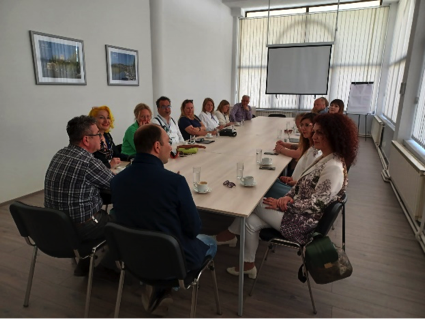
The Digital Economy and Society Index (DESI) 2020 identifies that 42% of European Citizens lack basic digital skills. While the current COVID-19 crisis has witnessed an increase in the number of internet users, ‘the development of digital skills does not come automatically with increased usage (DESI Thematic Chapters, 2020).’ As part of the Skills Agenda, the Upskilling Pathways initiative recommends the introduction of ‘coherent provision to improve the digital skills of the many millions of low-skilled or low-qualified’ citizens (On the Digital Education Action Plan, 2018).
Since 2013, the European Digital Competence Framework (DigComp) has acted as a reference for the development and strategic planning of digital competence initiatives at both European and Member State levels. The recently published DigComp at Work Implementation Guide (2020) evidences a wide range of digital upskilling-related services currently active across the Member States. However, the group in most urgent need identified above as ‘low-skilled or low-qualified citizens, experience barriers around access to education and training. E-learning is significantly less accessible to low socio-economic groups; the move to online learning highlights the tangible barriers faced by low-income households, and households of low education (Huhtinen, Elm, 2020).
Aware of the above context, and in response to the urgent need for digital upskilling in the rapidly evolving technological society resulting from COVID-19, ADVANCE (An innovative approach to reduce the Digital divide in Vocational Education and Training project is an initiative launched to develop and implement digital upskilling tools, in order to deliver quality and inclusive training/education for the most underrepresented in our society. The ADVANCE project will target groups of low-skilled citizens who most often lack self-confidence, they need to have resources focused on them and targeted to them otherwise they can become disillusioned with education and training. This group must now navigate accessing learning tools in the digital environment The implementation of digital upskilling and learning tools must be tailored to reach these at risk communities to prevent further socio-economic disadvantage in the COVID-19 era. The ADVANCE project aims to meet this challenge.
The ADVANCE partnership is composed of six partners from: The Republic of North Macedonia, Belgium (2), Romania, the Netherlands and Scotland. Organisations include: a public body facilitating educational opportunities; two NGO’s focused on training an education, centre for adult education and VET; an SME specialised in translating educational problems and private organisation responsible for supporting general secondary education and vocational education and training.
The ADVANCE partnership proposes an intervention at European level to prevent our low-skilled citizens being left behind in the digital environment. We will develop and deliver cohesive learning/training resources by enhancing digital and learning to learn competences. Materials will be delivered at national level, and adapted for use across the Member States, directed towards those with limited skills for accessing resources, to give them access to learning and training and to support them through a learning journey.
The ADVANCE project contributes to the upskilling, thus empowering, low-skilled citizens by:
- creating an overview of practices in place in Europe to self-assess digital competences in low-skilled citizens;
- employing digital self-assessment tools adapted to the target group to the DigComp framework;
- applying qualitative and quantitative indicators of our target groups’ ability to access educational/training resources;
- using the acquired indicators, preparing a digital skills training package and testing it on our target groups;
- developing and delivering a digital training app and learning resource to facilitate upskilling and access to opportunities.
By doing so, partners produce the following results:
- IO1 – Digital Competence Mapping and Learner Survey;
- IO2 – Digital Upskilling Tools Package;
- IO3 – Learning to Learn in the Digital Environment.
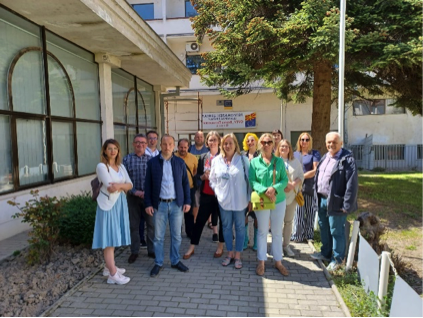
By implementing the project activities and reaching expected results, the ADVANCE project enhances the digital and learning to learn competences of low-skilled citizens, enabling them to confidently engage in further training/education and employment.
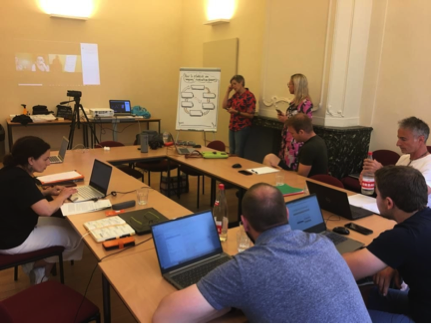
The Cooperation Partnerships aim at (among others) increasing quality in the work/activities and practices; addressing common needs:
- Educating on forest work and FSM ( one doesn’t go without the other). “ The Programme supports the use of innovative practices to make learners, staff and youth workers true factors of change. Priority will also be given to projects that – through education, training, youth and sport activities – enable behavioural changes for individual preferences, cultural values and awareness for sustainable development, consumption habits, and lifestyles.” ( p.10)
- All of our activities as foresters answer the European Green Deal ( EUR-Lex – 52019DC0640 – EN – EUR-Lex (europa.eu)), as “ the national strategic plans under the common agricultural policy should incentivise forest managers to preserve, grow and manage forests sustainably. […] the Commission will take measures, both regulatory and otherwise, to promote imported products and value chains that do not involve deforestation and forest degradation”
- Our project aims at ‘” developing competences in various environmental sustainability-relevant sectors”
- Answers the transversal priority “ Environment and fight against climate change”
- Answers the transversal priority “ addressing digital transformation through development of digital readiness, resilience and capacity” as our project supports the “ purposeful use of digital technologies in education, training…” + development of digital pedagogy and expertise in the use of digital tools for teachers
- Answers the following sector specific priorities
- “increasing the flexibility of opportunities in vocational education and training” : this priority supports initiatives that develop flexible and learner-centred VET programmes
- “ contributing to innovation in vocational education and training” : supports projects which core aim is to substantially change the way in which VET is practiced, making it more relevant to the current and future needs of the economy and society. These changes can be organizational (planning, financing, human resource management, monitoring and communication). They can also address teaching and learning processes through the development and implementation of new and more relevant teaching and learning approaches.
KA2 Future VET teacher
- Post author By enneproject
- Post date 15 June 2022
- No Comments on KA2 Future VET teacher
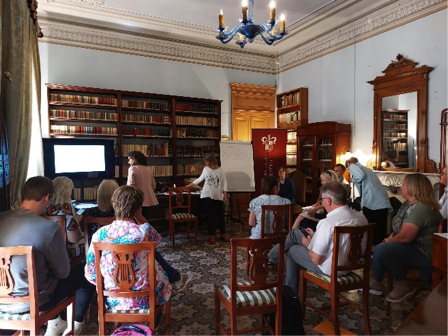
In this project schools from UK, Finland, Latvia and two organisations one from Italy and one from Belgium examine how within the different participating countries they are dealing with the increasing shortage of teachers in general and the shortage of teachers in VET in particular.
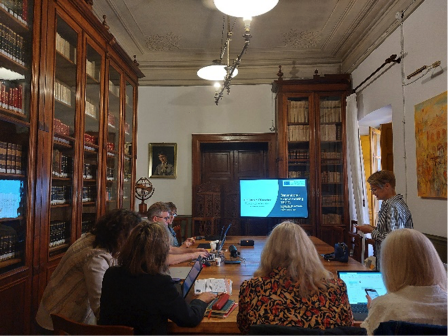
We learn from each other and with each other what measures are taken at national, regional and school level and the level of the teacher teams to deal with the shortage of teachers in order to be able to offer quality education on a permanent basis. In doing so, we also reflect on the way in which beginning teachers are supported in the first years of their careers and how this support takes further shape. Finally, we consider the intrinsic motivation of teachers and how you, as a manager, might have an impact on this. We do this by sharing examples of good practice with each other.
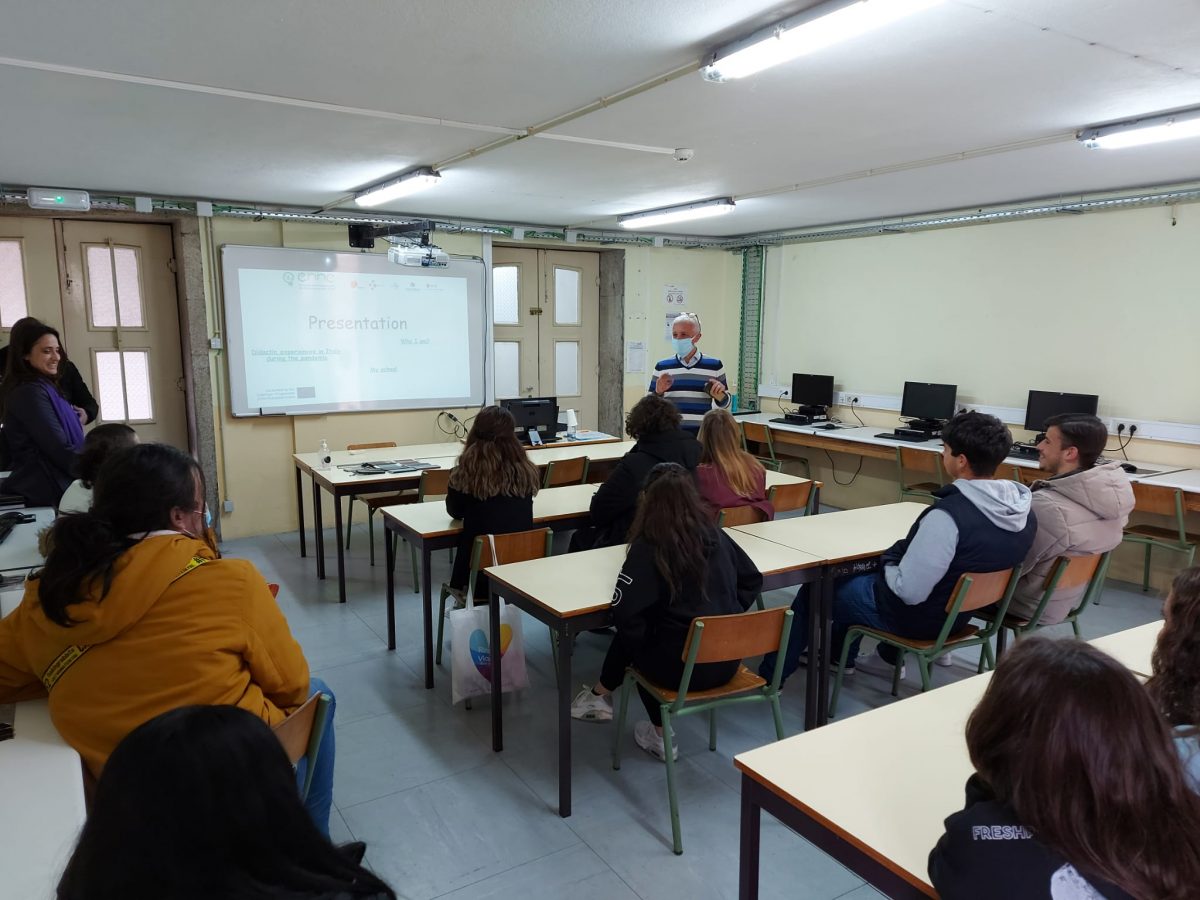
Vito – teacher at “Alfonso Casanova”, from Naples participated in the job-shadowing experience at “Escola Profissional de Campanhã”, Portugal, this is his story:
“I was interested in learning more about the creation and management of distance learning activities, the new apps and aids offered by didactics, also experienced during the DAD due to the pandemic. During my stay in Porto, I was able to compare my teaching experiences with those of some teachers at the host school and especially directly with the students in some classes. The job shadowing experience allowed me to observe, albeit for a short time, a different working context. It was also very interesting to define the work programme together with Portuguese colleagues and to collaborate directly in the field. Teaching abroad allows you to gain a broader view of the school world, exchange knowledge with colleagues from another country and directly experience good teaching practices. During the job shadowing experience I also gained a broader view of the school world and the specificities of different learning contexts”.
Chiara – teacher at “Alfonso Casanova”, from Naples participated in the job-shadowing experience at “Epromat Escola Profissional de Matosinhos”, Portugal, this is her story:
“I have the opportunity to get to know and confront myself with new educational realities. My objective is to design an educational activity in coordination and sharing with schools in other countries that can be replicated throughout Europe. It was interesting to observe the way of working and managing practical activities in another professional audiovisual school. I tried to get to know, as much as possible, the Portuguese educational system to understand how to get the most out of the workshop activities dedicated to vocational courses. I found it very interesting to discover that in Portugal we also work in didactic units. And I found it useful to verify that, in Portugal, the didactic units are related to a single macro-theme that is then declined in modules with a progressive level of difficulty. It will certainly be an organisation of work that I will also propose at my school. I have seen how pupils, confronted with a more complex task from time to time, progress in their learning. I also like the idea of communal spaces, there was a lunch room equipped with a microwave that supported the idea of a school as a space to be lived fully.
What emerges from both of us is the desire to develop through Erasmus opportunities a collaboration between teachers to design transnational teaching activities that can be replicated in all schools in Europe.”
